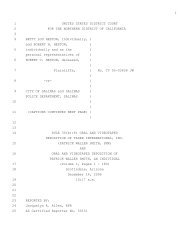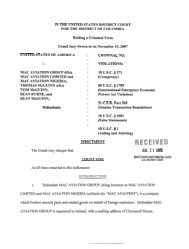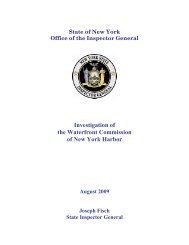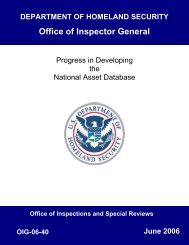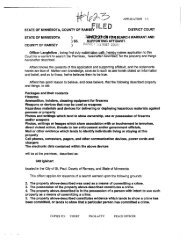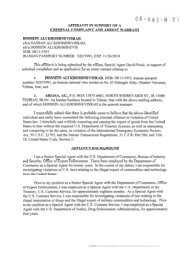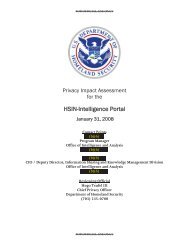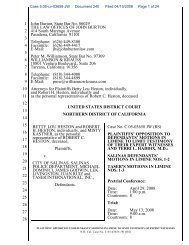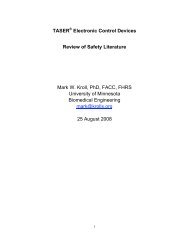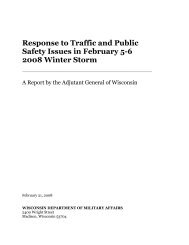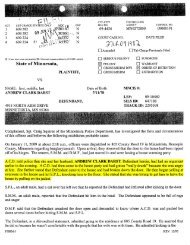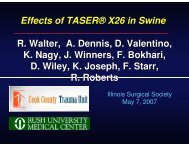04-473 - Garcetti v. Ceballos - Supreme Court of the United States
04-473 - Garcetti v. Ceballos - Supreme Court of the United States
04-473 - Garcetti v. Ceballos - Supreme Court of the United States
You also want an ePaper? Increase the reach of your titles
YUMPU automatically turns print PDFs into web optimized ePapers that Google loves.
Cite as: 547 U. S. ____ (2006)3Opinion <strong>of</strong> <strong>the</strong> <strong>Court</strong>recounted his observations about <strong>the</strong> affidavit, but <strong>the</strong>trial court rejected <strong>the</strong> challenge to <strong>the</strong> warrant.<strong>Ceballos</strong> claims that in <strong>the</strong> aftermath <strong>of</strong> <strong>the</strong>se events hewas subjected to a series <strong>of</strong> retaliatory employment actions.The actions included reassignment from his calendar deputyposition to a trial deputy position, transfer to ano<strong>the</strong>rcourthouse, and denial <strong>of</strong> a promotion. <strong>Ceballos</strong> initiatedan employment grievance, but <strong>the</strong> grievance was deniedbased on a finding that he had not suffered any retaliation.Unsatisfied, <strong>Ceballos</strong> sued in <strong>the</strong> <strong>United</strong> <strong>States</strong> District<strong>Court</strong> for <strong>the</strong> Central District <strong>of</strong> California, asserting, asrelevant here, a claim under Rev. Stat. §1979, 42 U. S. C.§1983. He alleged petitioners violated <strong>the</strong> First and FourteenthAmendments by retaliating against him based onhis memo <strong>of</strong> March 2.Petitioners responded that no retaliatory actions weretaken against <strong>Ceballos</strong> and that all <strong>the</strong> actions <strong>of</strong> which hecomplained were explained by legitimate reasons such asstaffing needs. They fur<strong>the</strong>r contended that, in any event,<strong>Ceballos</strong>’ memo was not protected speech under <strong>the</strong> FirstAmendment. Petitioners moved for summary judgment,and <strong>the</strong> District <strong>Court</strong> granted <strong>the</strong>ir motion. Noting that<strong>Ceballos</strong> wrote his memo pursuant to his employmentduties, <strong>the</strong> court concluded he was not entitled to FirstAmendment protection for <strong>the</strong> memo’s contents. It held in<strong>the</strong> alternative that even if <strong>Ceballos</strong>’ speech was constitutionallyprotected, petitioners had qualified immunitybecause <strong>the</strong> rights <strong>Ceballos</strong> asserted were not clearlyestablished.The <strong>Court</strong> <strong>of</strong> Appeals for <strong>the</strong> Ninth Circuit reversed,holding that “<strong>Ceballos</strong>’s allegations <strong>of</strong> wrongdoing in <strong>the</strong>memorandum constitute protected speech under <strong>the</strong> FirstAmendment.” 361 F. 3d 1168, 1173 (20<strong>04</strong>). In reachingits conclusion <strong>the</strong> court looked to <strong>the</strong> First Amendmentanalysis set forth in Pickering v. Board <strong>of</strong> Ed. <strong>of</strong> TownshipHigh School Dist. 205, Will Cty., 391 U. S. 563 (1968), and



